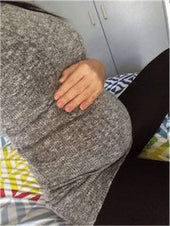NHS pays for private fertility treatment after rates slump

SCOTLAND'S largest health board has paid for patients to undergo more than 1000 rounds of fertility treatment at a private hospital since a drop in success rates after building work near its own centre.
EXCLUSIVE: How we reported on the difficulties at the hospital.
NHS Greater Glasgow and Clyde refused to disclose how much it had spent since November 2012, when The Herald revealed it was sending women to Glasgow's Nuffield hospital after pregnancy rates at its Assisted Conception Service in Glasgow Royal Infirmary (GRI) fell.
A spokeswoman said it had paid for 1079 procedures. The price varies but an IVF cycle can be around £3000, meaning the potential cost could be more than £3 million.
Treatment was suspended in November 2012 when 11 women suffered "unexplained failed or reduced fertilisation" over a number of weeks dating back to the beginning of September 2012.
Hundreds have undergone treatment at Nuffield, including 42 treated from September to November who were offered a complimentary treatment cycle.
A Human Embryology and Fertility Authority (Hefa) probe blamed the issue on air contamination caused by renovation works in an adjacent GRI building. But a Hefa report advised bosses to "reconsider evidence that led them to conclude only treatments since September 2012 were compromised as a result of work".
Graphs from the GRI's Assisted Conception Service show pregnancies from IVF dipped below the "warning limit" to 20% twice in 2012 - in May and in July - before falling to less than 10% in September. Rates of pregnancy from ICSI - where sperm is injected into the egg - dipped close to 10% in May.
Hefa pointed to "evidence of fluctuations in rates" dating back to May 2012. Unit bosses attributed this to reduced air quality in the summer due to cleaning and maintenance, a spike in patients with poor prognosis and the introduction of a single embryo transfer protocol to reduce the centre's rate of twin, triplet and other multiple pregnancies in line with advice.
It said it "may have been reasonable for the centre to attribute fluctuations in rates and air quality between May and July 2012 to what appeared to be known causes but ... it should reconsider the evidence".
However, responding to Hefa, Dr Helen Lyall, who leads the Assisted Conception Unit, said a review of the centre's performance from 2009 to 2012 showed "occasions when the clinical pregnancy rate has declined" which could not be linked to building work, which began on January 6, 2012. These fluctuations were "always both preceded and followed by substantially superior rates", she added.
Dr Lyall said: "Although the evidence for a causal link between the incident in late 2012 and adjacent building work is indirect there are congruent factors in support. Building work moving closer to the laboratory, deteriorating air quality, downward trajectory of KPIs and the fact a changed environment has alleviated the problem.
"Our review has failed to identify a similar set of congruent parameters at earlier points in the year to explain fluctuations in clinical pregnancy rates."
The GRI's new premises are due to open in March, but bosses have to reapply for a full licence before it can resume a normal programme.
Hefa granted the unit a conditional licence, prohibiting it from carrying out procedures besides the storage and distribution of sperm, eggs and embryos until the regulator is sure the premises are safe.
A health board spokeswoman said: "Once the refurbishment work is complete the unit will be handed back to the NHS and a period of inspection by Hefa will follow. This is a standard process."










